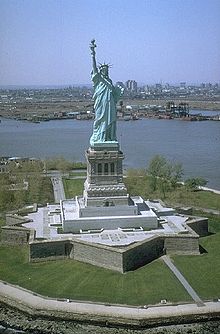Well prior to the U. S. declaration of war, FDR had launched an undeclared war against Germany. (As Hoover described in Freedom Betrayed.) Hitler declared war on the U.S. partly because of that, partly because he saw a chance to sink Lend-Lease ships in the Atlantic while most of the U.S. navy was engaged in the Pacific, and partly because he was convinced FDR would eventually succeed in his objective of turning his undeclared partial war against Germany into a full scale war.
Germany was tied down by its wars against the Soviet Union and Britain. It was not in a position to do anything at all to the United States, except for sinking Lend Lease ships en route to the Soviet Union or Britain. (Also there was the sinking of American ships in the Caribbean and South Atlantic.) The Tripartite Agreement might have created in Japan the false confidence that if they went against the U.S. at least they wouldn’t be going it alone. And it’s certainly true that Germany received the brunt of the American war effort. But because Germany was never in a position to threaten American security, the U.S. always had the option of devoting the entirety of its war effort against Japan, if that was what was necessary to stave off defeat in the Pacific. The “Germany First” strategy was adopted to protect the Soviet Union, not the United States. Had Japan ever been close to achieving military victory in the Pacific, FDR might have been forced to abandon his “Germany first” strategy in favor of a “protect America first” plan.
1/3 of America’s war effort was devoted to Japan, the other 2/3 devoted to Europe. But as of December 1941, Japan had only 10% of the industrial capacity of the United States. Nor was America Japan’s sole opponent: it was engaged in an unwinnable war in China, and was in conflict with the British Empire. Under those circumstances military victory was never an option for Japan–at least not in a war against the U.S. If Japan couldn’t even defeat the 1/3 of the American war effort it faced, it certainly couldn’t have defeated America had all 3/3 of the U.S. war effort been directed against it. As that effort would have been, had Japan ever been close to decisively ending the war through military means.
Its only chance of victory would have been to avoid war against America if possible, and focus on the Soviet Union and/or the British and Dutch empires instead. The question there is: if Japan had attacked the British or Dutch Empires, would the U.S. have declared war? Prior to Pearl Harbor, the FDR administration was very pro-war, and the American people were very anti-war. Given the sentiments of the latter, it’s unlikely that Congress would have approved a declaration of war. If we weren’t willing to go to war over the fall of France, why would we go to war to save European colonialism?
The Tripartite Pact could have been an important component of an anti-Soviet or anti-British strategy. But it was never a useful tool for dealing with American interventionism. Because this tool was used for the wrong purpose, I see it as a defeat for Japan. I voted for the “maybe” option in the poll. Like any tool, the Tripartate Pact could have been used for a logical purpose or for something illogical. The Tripartite Pact was not to blame for the FDR administration’s increasingly inflammatory actions against Japan, nor for the resultant Pearl Harbor attack. Pearl Harbor was an emotion-driven decision.







